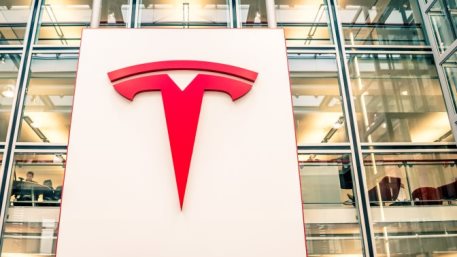
Would it be an overstatement to say that the future of the financial industry as we know it is currently under fire from a coordinated front of retail traders? No, it would not. It certainly seems that the subreddit "wallstreetbets" members are more than willing to agree that they want to challenge the status quo of the stock market. Case in point, they go openly against massive hedge funds currently shorting stocks of companies that are believed to be losing value by buying en masse these stocks. That is how GameStop shares surged so quickly.
Short squeezing the hedge fund mainstays on Wall Street
The GameStop saga has revealed so far that wallstreetbets' participants are quite intent on bringing the pressure to Wall Street by using unconventional strategies to gain market exposure. Melvin Capital - one of the targeted hedge funds - has reportedly lost 53 per cent of its value in January alone, which speaks volumes of the breadth of the coordinated wave of retail trades.
This is now being viewed by many as a virtuous battle of the little guy fighting for the first time against the Wall Street behemoths - a retail David versus an institutional Goliath if you will. But is it a battle of a moral retail trading sector against the notoriously corrupt establishment that is really unfolding right now?
The cult of wokeness creeping in
It seems that the recent trend of social justice fighting that has already swept across the political arena of the U.S. centre-left is currently trying to encompass new battlegrounds. What we are witnessing on the stock market certainly has the same undertones of the highly controversial cancel culture. This time, however, it is the very essence of trading that is being threatened to be cancelled.
From the point of view of many online forums, big hedge funds such as Melvin Capital selling stocks such as GME are demonstrative of Wall Street corruption and greed. Using their capital strength to go against struggling companies exemplifies the issues with the institutional zeitgeist in many of these retail traders' eyes. Moreover, they are viewing their actions as a win-win situation - making money at the expense of the 'big and evil' elite.
Perceptions are misleading
While it is true that Wall Street greed has forced Main Street to pay the burden of its mistakes many times in the past, that does not necessarily mean that everything an institutional entity does is unethical and potentially damaging. In relation to GameStop, selling the company's shares makes a lot of sense, given the current situation. The business is struggling, and the coronavirus fallout exacerbates its woes. In trading, the only real sin is ignorance.
While it is easy to side against a big hedge fund recognising these patterns, what about a small retail trader, who does not listen to "Roaring Kitty" for advice, being "on the wrong" side of this moral dilemma? What about the many small traders who also applied the same logical scrutiny and consequently decided to short GME? Are they also corrupt and greedy for casting their vote of no-confidence on a struggling company?
Combined efforts of groups such as wallstreetbets should not be instantaneously viewed as the little guy fighting back against the big bad elite. No small trader can ever cause a multi-billion wipe-out in a matter of weeks on his own. Even if they do not yet recognise it, organised (one may even say colluding) groups such as wallstreet bets are using their combined capital strength to manipulate the market in a way that is manifestly opposed to their justice beliefs. So what really is the difference between them and their alleged enemy, if both can manipulate the market in a way that suits them?
What is the harm?
Just like in real life, irrationality is almost always being punished in trading. In this case, the irrationality of wallstreetbets is manifested by the misconception that such a short squeeze of BME can be beneficial to all involved. It takes many individuals to drive the stock price higher but getting off that boat is an entirely different story. Presumably, all of the involved retail traders would eventually want to sell their GameStop stake and collect their profits, but what would happen with the share price if they do it all at once?
The quick answer is a liquidity trap. There will not be enough demand to satisfy the market, which is exactly how such speculative bubbles burst. Not only that wallstreetbets' participants will not be able to enjoy the fruits of their coordinated attack all at once, but their actions could very conceivably spill over to affect the broader market. Another stock market crash would, as always, have to be cushioned by more FED interventions, which would add to the public debt. This poses great risks for an economy whose tentative recovery is still on the fringe of breaking down.
The longer-term threats are more profound. As alluded to at the beginning of the article, these coordinated actions are extremely subversive to trust in the free market's functioning. This polarization of opinions strives to shift the focus away from the conventional logic of trading - to bet on securities that are expected to grow in value, or conversely, to bet against instruments that seem poised to depreciate in time - and to substitute it with an unstable cult of moral betting.
It could be detrimental even to try to square fleeting opinions of what is socially acceptable and what is ethically apprehensible with the forces of supply and demand on the market. Such a ticking time bomb could potentially brake the free market system, which would undoubtedly have unknown effects on society as a whole.




















